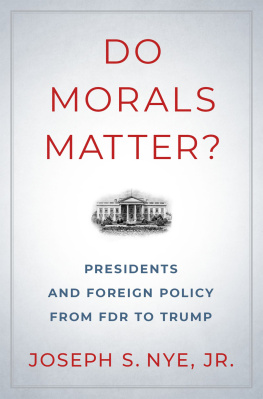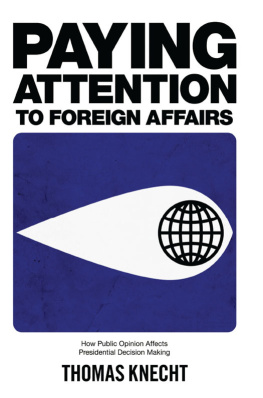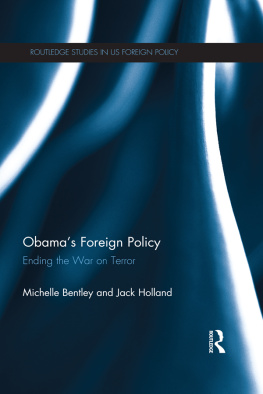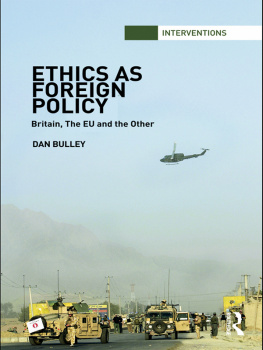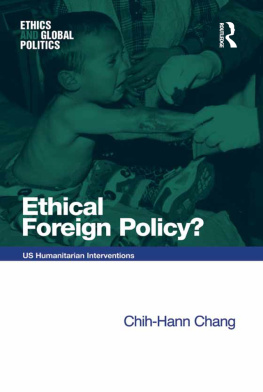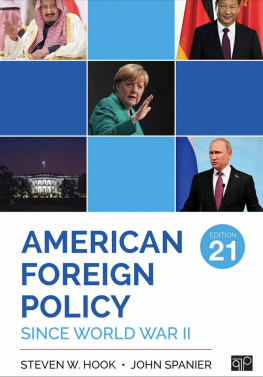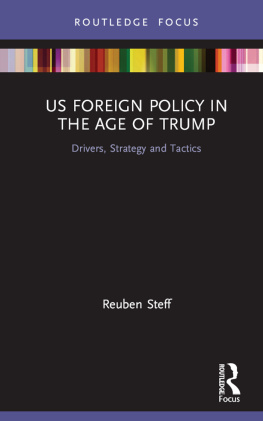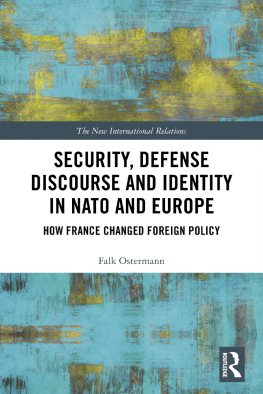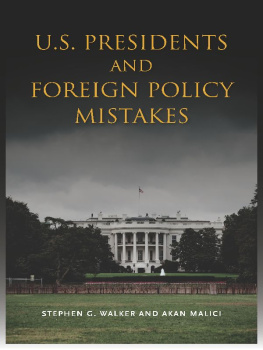DO MORALS MATTER?

Oxford University Press is a department of the University of Oxford. It furthers the Universitys objective of excellence in research, scholarship, and education by publishing worldwide. Oxford is a registered trade mark of Oxford University Press in the UK and certain other countries.
Published in the United States of America by Oxford University Press
198 Madison Avenue, New York, NY 10016, United States of America.
Joseph S. Nye, Jr. 2020
All rights reserved. No part of this publication may be reproduced, stored in a retrieval system, or transmitted, in any form or by any means, without the prior permission in writing of Oxford University Press, or as expressly permitted by law, by license, or under terms agreed with the appropriate reproduction rights organization. Inquiries concerning reproduction outside the scope of the above should be sent to the Rights Department, Oxford University Press, at the address above.
You must not circulate this work in any other form and you must impose this same condition on any acquirer.
Library of Congress Cataloging-in-Publication Data
Names: Nye, Joseph S., Jr., author.
Title: Do morals matter? : presidents and foreign policy from FDR to Trump /
Joseph S. Nye Jr.
Other titles: Presidents and foreign policy from FDR to Trump
Description: New York, NY : Oxford University Press, 2020.
Identifiers: LCCN 2019012366 | ISBN 9780190935962 (hardback) |
ISBN 9780190935979 (updf) | ISBN 9780190935986 (epub)
Subjects: LCSH: United StatesForeign relations1945-1989Moral and
ethical aspects. | United StatesForeign relations1989Moral and
ethical aspects. | PresidentsProfessional ethicsUnited States. |
PresidentsUnited StatesDecision making. | BISAC: POLITICAL SCIENCE /
International Relations / General. | POLITICAL SCIENCE / Political Freedom
& Security / International Security.
Classification: LCC E744 .N94 2020 | DDC 327.73009/04dc23
LC record available at https://lccn.loc.gov/2019012366
A haiku for Molly
We are clay turning
On the potters wheel of life
Your love centers me
CONTENTS
It is not a career-enhancing topic for a young scholar, but has long intrigued me as an old practitioner and student of American foreign policy.
The reasons for skepticism seem obvious to many. While historians have written about American exceptionalism and moralism, diplomats and theorists like George Kennan long warned about the bad consequences of the American moralistlegalist tradition.realm of anarchy with no world government to provide order. States must provide for their own defense, and when survival is at stake, the ends justify the means. Where there is no meaningful choice there can be no ethics. As philosophers say, Ought implies can. No one can fault you for not doing the impossible. By this logic, combining ethics and foreign policy is a category mistake, like asking if a knife sounds good rather than whether it cuts well, or whether a broom dances rather than sweeps well. By this logic, in judging a presidents foreign policy we should simply ask whether it worked, not also ask whether it was moral.
While this view has some merit, it ducks hard questions by oversimplifying. The absence of world government does not mean the absence of all order. Some foreign policy issues relate to our survival as a nation, but most do not. Since World War II, the United States has been involved in several wars but none were necessary for our survival. And many important foreign policy choices about human rights or climate change or Internet freedom do not involve war at all. Most foreign policy issues involve trade-offs among values that require choices, not application of a rigid formula of raison detat. A cynical French official once told me, I define good as what is good for the interests of France. Morals are irrelevant. He seemed unaware that his statement itself was a moral judgment. It is tautological or at best trivial to say that all states try to act in their national interest. The important question is how leaders choose to define and pursue that national interest under different circumstances.
What is more, whether we like it or not, Americans constantly make moral judgments about presidents and foreign policy. The advent of the Trump administration has revived interest in what is a moral foreign policy and raised it from a theoretical question to front-page news. For example, after the 2018 killing of Saudi dissident journalist Jamal Khashoggi in the Saudi Arabia consulate in Istanbul, President Trump was criticized for ignoring clear evidence of a brutal crime in order to maintain good relations with the Saudi Crown Prince. Liberals labeled Trumps statement about Khashoggi remorselessly transactional, heedless of the facts, Access to oil, sales of military equipment, and regional stability are national interests, but values and principles that are attractive to others are also national interests. How can they be combined?
Unfortunately, many judgments about ethics and foreign policy are haphazard or poorly thought through, and too much of the current debate focuses on the personality of Donald Trump. As Maggie Haberman, a perceptive long-term reporter once commented to me, Donald Trump is not unique; he is extreme. Some of his actions are not unprecedented, as we will see as we look at the record of all our presidents since the Second World War. Even more important, Americans are seldom clear about the criteria by which we judge a moral foreign policy. We praise a president like Ronald Reagan for the moral clarity of his statements as though rhetorical good intentions are sufficient in making ethical judgments. However, Woodrow Wilson and George W. Bush showed that good intentions without adequate means to achieve them can lead to ethically bad consequences, such as the failure of Wilsons Treaty of Versailles or Bushs invasion of Iraq. Or we judge a president simply on results. Some observers credit Richard Nixon for ending the Vietnam War, but he sacrificed 21,000 American lives to create a reputational decent interval that turned out to be an ephemeral pause on the road to defeat.
Good moral reasoning, as I argue in this book, should be three-dimensional, weighing and balancing the intentions, the means, and the consequences of presidents decisions. A moral foreign policy is not a matter of intentions versus consequences but must involve both as well as the means that were used. Moreover, good moral reasoning must consider the consequences of general actions such as maintaining an institutional order that encourages moral interests, as well as particular newsworthy actions such as helping a human rights dissident or a persecuted group in another country. And it is important to include the ethical consequences of nonactions, such as President Trumans willingness to accept stalemate and domestic political punishment during the Korean War rather than follow General MacArthurs recommendation to use nuclear weapons. As Sherlock Holmes famously noted, we can learn a lot from the dogs that do not bark.
This book is not a history. I make no effort to be complete or to consult all sources in describing the ethical aspects of presidents foreign policies since World War II. Nor do I attempt to cover the earlier centuries of American foreign policy. What I offer here is an exercise in normative thinking applied to the period since 1945 when the United States has been the most powerful country in the worldsometimes called the era of Pax Americana or the Liberal International Order. Many commentators speculate that this period is coming to an end and that new foreign policies will be necessary to meet the new challenges that I describe in the final chapter. As we debate such policies, ethics will be one part of the arguments that we will use. To pretend that ethics will play no role is as blind as to imagine that the sun will not rise tomorrow. Since we are going to use moral reasoning about foreign policy, we should learn to do it better. The analysis and scorecards developed in this book are modest steps in that direction.

